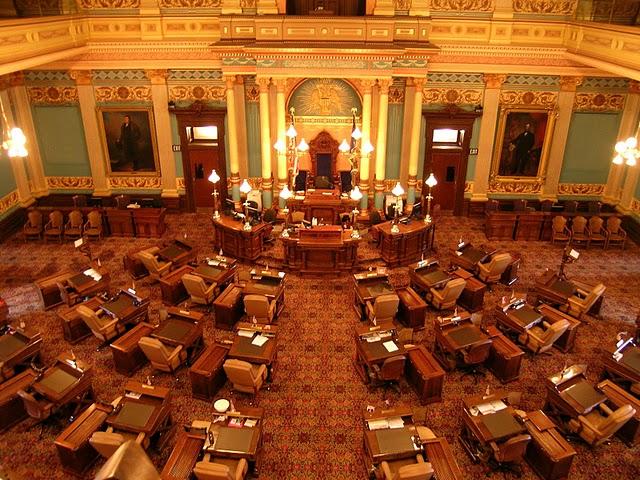
Sports betting is advancing down the legislative field in Michigan. A House committee advanced a package of bills to legalize sports betting Tuesday.
The current legislative package (HB 4916) would legalize sports betting with a tax rate of 8%, and a licensing fee of $100,000 – very competitive policies.
For whatever reason, Governor Whitmer and some others would like to snatch defeat from the jaws of victory, and are pressing for a much higher tax rate of 15%, perhaps more.
It has been a rough past few years for Michigan sports teams, but that’s no reason for the Governor to steer the state toward losing tax policy on sports betting.
Michigan would be in a good place on sports betting tax rates with HB 4916. Neighboring Indiana has a 9.5% tax rate on adjusted gross revenue. Michigan’s tax rate would come in under that, and well under nearby Illinois’ 15% tax rate.
If anything, the debate in Michigan should be about lowering the rate. Increasing the tax rate, as Governor Whitmer wants, would put the state at a massive disadvantage.
It would then be easy for neighboring states that have not legalized, like Ohio, to come in with a lower tax rate than their regional rival. The Buckeye State has yet to legalize sports betting, but it is a ripe target for legislators in Columbus who finished work on their two-year budget this summer.
States that have legalized sports betting with lower tax rates have succeeded, New Jersey was the first and has seen industry performance catch up with Nevada already. Meanwhile, states that have not had the results they hoped for tend to have high tax rates: Pennsylvania with an effective 36% tax rate, Delaware and Rhode Island take over 50% of betting revenues.
There is a ways to go before the finish line on sports betting in Michigan, and some things will change. One thing that should not happen is making the tax rate higher.

